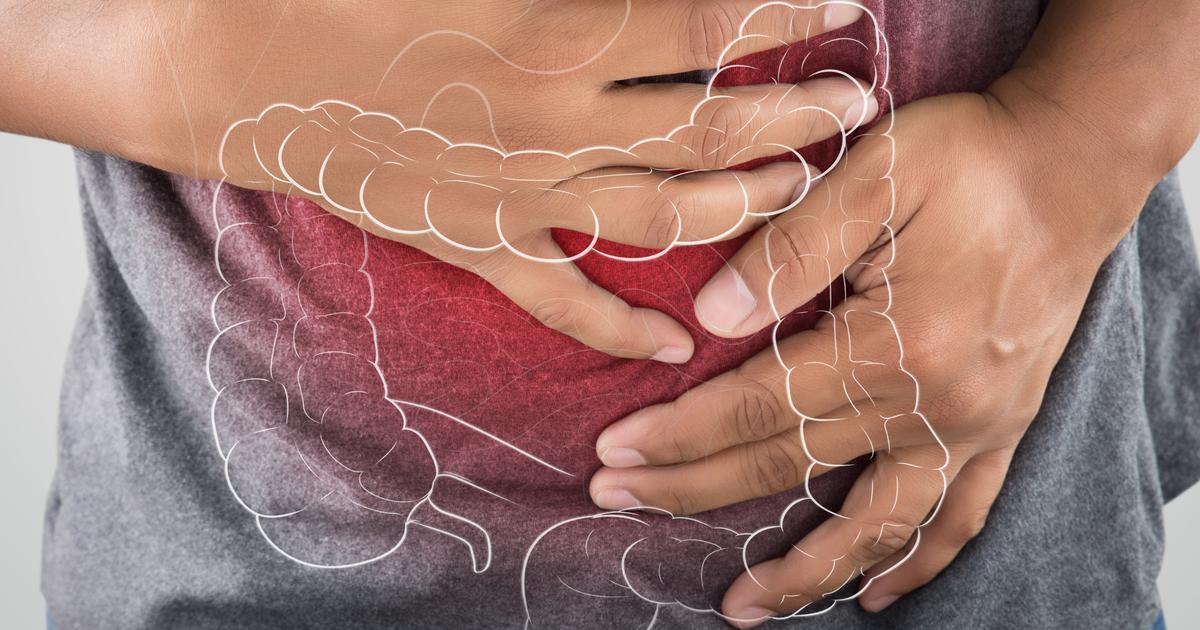Ways To Know If You Are Lactose Intolerant
Lactose intolerance is quite a common health issue and for the most part, it is nothing to be overly concern about. It simply means an individual's body has difficulties digesting lactose, which is a type of natural sugar found in milk and dairy products, and is commonly misdiagnosed as a food allergy to milk (this is far more severe). If individuals have noticed their body reacts in a negative way following the consumption of milk or other dairy products, they may be lactose intolerant. Here are the top signs that may indicate lactose intolerance now.
Bloating

Simply overeating different foods (including milk and dairy products), particularly in a hasty manner, is one of the most common causes of bloating, which is when an individual's stomach feels swollen. But if individuals consume their dairy at a reasonable pace and do not overindulge, bloating can be a clear sign they are lactose intolerant. If individuals have noticed they feel like they just stuffed themselves with a three-course meal after only having a glass of milk, they may be experiencing one of the top signs of lactose intolerance.
Continue reading to discover the other warning signs of lactose intolerance.
Pain Or Cramps

Pain and cramping in the stomach is another red flag indicating an individual's body may be having some issues digesting food that contains lactose. Many assume abdominal pain and cramping is a symptom of another medical condition or they exercising their core muscle too much. While this can be the case, it is more than likely there is an underlying issue whereby the individual's body is trying to cope with lactose intolerance, particularly when the affected individual ate recently. This is one reason why it can be important for individuals to monitor what (and how much) they are consuming in the way of dairy products each day.
Get more details on the major symptoms of lactose intolerance now.
Loose Stools Or Diarrhea

If individuals find there is a noticeable increase in loose stools or diarrhea after they eat dairy products, they could very well be lactose intolerant, and their body is showing physical signs of this. This symptom can be a huge issue as well, considering loose stools and diarrhea can often lead to dehydration, which is unhealthy for everyone. If individuals are suffering from loose stools or diarrhea, especially after eating, it is vitally important for them to meet with their physician for a checkup and to get a proper diagnosis and understand the most effective course of action.
Learn more about the warning signs indicating an individual may be lactose intolerant now.
Stomach Makes Rumbling Sounds

When the stomach makes rumbling sounds after eating a dairy product, it's due to the gas, and this is a side effect of the bacteria interacting with lactose in the gut. It’s not really the individual's stomach that’s rumbling, but their intestinal tract. This happens when any food isn’t absorbed properly, including different types of fruits, vegetables, cereals, beans, and, of course, dairy products. The sound happens when the trapped gas, which is a mix of methane, carbon dioxide, and hydrogen, is pushed around through peristalsis. Peristalsis is the usually painless muscle contractions of the gastrointestinal tract. The formal name for these sometimes embarrassing rumbling sounds from the gut is borborygmus.
Read more about major symptoms indicative of lactose intolerance now.
Vomiting

Vomiting ties in quite closely with loose stools and diarrhea when it some to signs of lactose intolerance, as vomiting regularly can also lead to dehydration and an abundance of other health issues, including severe esophageal problems. If individuals have noticed regular occurrences of vomiting following the consumption of different dairy products, it is important for them to see their primary doctor as soon as possible for proper diagnosis and care. Vomiting and dehydration, regardless of the cause, are not to be taken lightly. Early and proper treatment are the best ways to ease lactose intolerance and to prevent further issues.
Keep reading to learn more about how individuals can tell if they might be lactose intolerant now.
Increased Gas Or Flatulence

One symptom that might make an individual suspect they may be lactose intolerant is increased gas or flatulence after they’ve consumed dairy products such as milk, yogurt, or soft cheese. The increase in gas comes because the lactose is not processed in the small intestine the way it would if the individual had a sufficient amount of lactase. Lactase is the enzyme that breaks down milk sugar into two simpler sugars: galactose and glucose. Normally, these sugars are absorbed through the walls of the small intestine to enter the bloodstream. With lactose intolerance, the milk sugar passes into the large intestine, which is mostly a holding vat for what’s left of foods broken down in the small intestine. Here, the lactose is attacked by bacteria, which leads to gas and water. This, in turn, leads to other symptoms, such as stomach noises, cramps, and flatulence.
Uncover more details related to spotting lactose intolerance now.
Onset Of Symptoms

The onset of symptoms in someone who is lactose intolerant usually occurs within a half an hour to two hours after they ingest dairy. Besides the increased gas and flatulence and stomach rumbling sounds, the affected individual, we know, also experiences cramping, stomach pain, bloating, nausea, and diarrhea. The pain is caused by the release of gases and water as the lactose ferments in the colon. The fermentation also produces fatty acids, which contribute to the pain. The bloating is also caused by the gas and increased volumes of water, which causes the wall of the colon to distend. The increase in the amount of water in the colon due to lactose intolerance makes the stool found there loose, which leads to diarrhea. However, these uncomfortable symptoms aren’t directly related to how much lactose the individual has ingested, but to how sensitive their body is to their symptoms. Fortunately, lactose intolerance does not damage an individual’s gastrointestinal tract, no matter how unpleasant and severe the symptoms are.